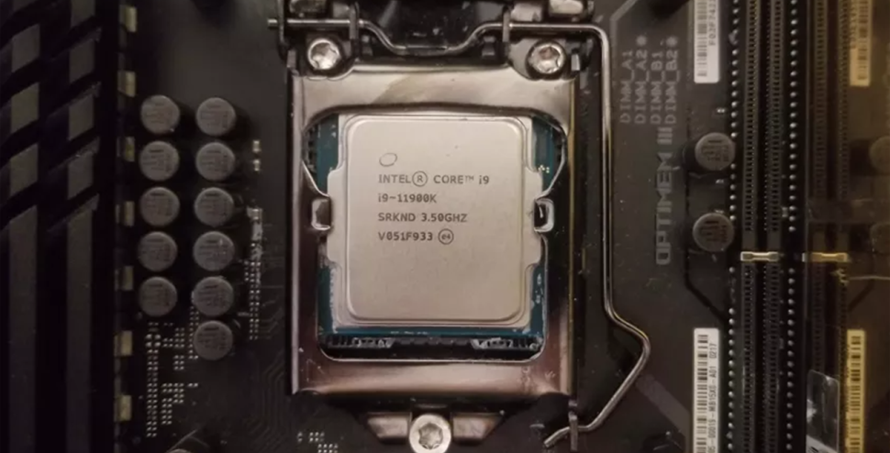
Intel Says Goodbye to Rocket Lake CPUs
Intel this week announced plans to discontinue its higher-end 11th Generation Core ‘Rocket Lake’ processors, which are made using its 14nm-class process technology. The CPUs will still be available to Intel’s partners for a while, but their days are now numbered. Intel also said it will phase out its 400 and 500-series chipsets for processors in LGA1200 packaging.
Intel advised its partners to place their final orders on 11th Generation Core i5, Core i7, Core i9, and corresponding Xeon W-series processors, as well as select 400 and 500-series chipsets for LGA1200 platforms by August 25, 2023. The final CPUs and chipsets will be shipped by February 23, 2024. The company will keep Rocket Lake-based Xeon E-series CPUs for embedded applications around for longer, but the bulk of Rocket Lake processors will be discontinued by next year.
Intel’s Rocket Lake processors for desktops have always been somewhat controversial: On one hand, they’re based on the Cypress Cove microarchitecture (which derives from Sunny Cove microarchitecture) and are equipped with an Xe-powered integrated GPU, just like Intel’s 10nm Ice Lake and Tiger Lake CPUs for mobile PCs and compact desktops. On the other hand — unlike Ice Lake and Tiger Lake processors — Rocket Lake chips are made using a refined 14nm-class process technology.
Because Rocket Lake chips feature backported general-purpose cores, Intel had to reduce the core count of these CPUs from 10 (in the case of Comet Lake) to eight. The new chips still offered better performance than their predecessors in loads of applications, but those who needed higher core count preferred AMD’s Ryzen 9 3900-series CPUs with 12 or 16 cores, or even Intel’s 10th Generation Comet Lake processors.
It’s unlikely that Intel’s 11th Generation Core Rocket Lake CPUs will be missed all that much, as Intel has since released two 10nm-based product families for desktops featuring competitive microarchitectures. But for those who would like to upgrade their LGA1200 machines, Rocket Lake chips will continue to be available for a while — but not forever.